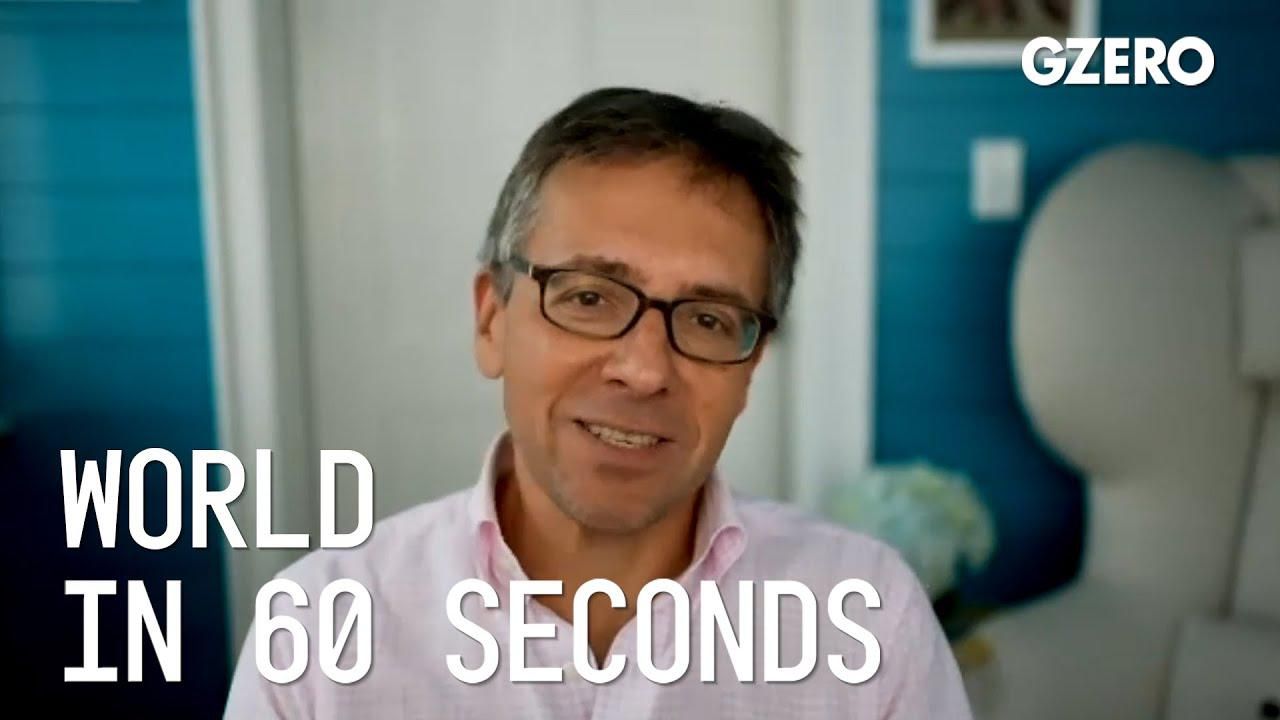
Ian Bremmer shares his perspective on global politics this week with a look to outer space, in a special edition of (Out of The) World In 60 Seconds:
Was today's Blue Origin space flight a big deal for humankind, or just a big deal for Jeff Bezos?
I'm not sure the space flight itself was such a big deal for humankind, but I do think the advances in space technology, which are increasingly stepping up, they're much quicker. I mean, reusable rockets that land exactly where they took off. That's very different from the space shuttle a couple of decades ago, and very exciting in terms of the ability to not just engage in space tourism, but explore both what's outside of our Earth and beyond. So yeah, I think the fact that's being driven by the private sector is a big deal for the United States, a big deal for the planet. I, having said that, the planet that we're right now all on, is the one that matters, I think, the most to everybody for the foreseeable future.
Did Richard Branson steal Jeff Bezos' thunder?
No, I don't think he did. I think more relevantly, Richard Branson saved his company, Virgin Galactic. They had a problem. One of their planes or rockets, if you will, had malfunctioned. There were huge delays, and now suddenly they showed right before Bezos. They got an enormous amount of media attention. Branson's always been a genius at that. I'm much happier that he decided to apply himself to outer-space travel or near-space travel and tourism rather than trying to run for political office, frankly. It's better aligned towards that, and I think it will get more attention to space. Frankly, as someone who always loved space stuff and dinosaurs, when I was a kid, I think that's a good thing.
Will this flight have geopolitical implications like the 20th-century Space Race?
Sort of in the sense that in the United States, NASA has long been seriously underfunded. A lot of scuttled missions, not a lot of grand vision and ambition like we used to in the days of the Apollo missions. The Chinese, the Indians, the Emiratis are doing a lot more of that than NASA is, but the United States is still, in many ways, way out in front of the space race because of Jeff Bezos, because of Elon Musk. In fact, I'd argue that it's the guy that's not in the headlines this week or last week that matters most for space. That's Elon. He's kind of dominating near-Earth orbit. The truly interesting thing about Elon Musk though, and this is geopolitical, is that SpaceX is really an arm of the American military. It's like over 90% of all of their contracts are with NASA and the Pentagon, while Tesla is doing enormous business with high tech in China, with Chinese partners. And the ability for Elon to engage in that geopolitical balancing act. It is probably the most problematic business model out there of all of the advanced tech players. I'm not sure it's sustainable and I'm not sure which one he's going to choose. So we'll see where that goes.